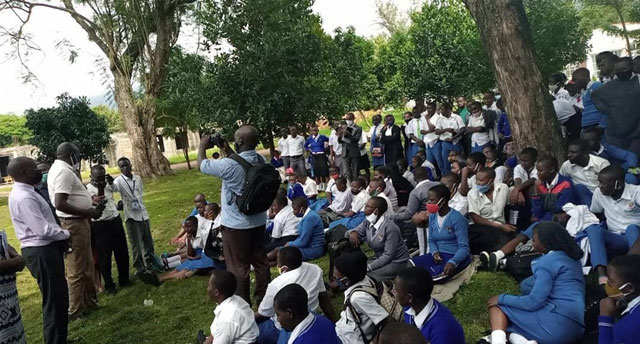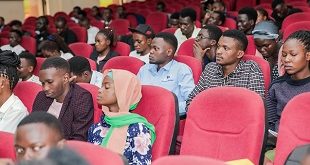
Kampala, Uganda | THE INDEPENDENT | The World Bank has warned that the continued under-investment in human capital development is greatly affecting the individual productivity of Ugandans, and will likely stifle the growth trends.
According to the 22nd Edition of the World Bank’s Uganda Economic Update, the economy continues to recover from multiple shocks and a challenging global environment, with robust activity due to strong industrial and services sector performances.
Although agricultural production was affected by adverse weather conditions, the sector recorded strong growth, while also overcoming inflationary pressures that arose from the global hikes in commodity prices caused by the war in Ukraine, according to the Bank.
Growth has since returned to a commendable 5 per cent and the Uganda Bureau of Statistics predicts it to accelerate at 6 per cent or more this financial year. However, the global lender thinks this growth is fragile or vulnerable to several risks like a possible spillover from the war in Sudan and recent events in the global markets.
The experts say Uganda is entering a critical stage where its development will soon depend on human capital like the knowledge, skills, and health that people accumulate throughout their lives. It is also estimated that Uganda’s population will grow by 60 percent in the next 20 years, yet, not much is being done by way of public investment to cater for this.
The World Bank estimates that at current levels of investment in human capital, a child born in Uganda today will grow up to be only 38 per cent as productive as he or she could be with complete education and full health.
“For Uganda to benefit from a demographic dividend, the country will need not only substantial resources to serve a larger population, but it must further elevate its investments in social services to improve the current poor levels of access and quality,” says Keith Hansen, Country Director for Kenya, Rwanda, Somalia and Uganda.
And, in providing access to human capital development, he says, equality “is key to addressing the inequality of opportunities and making future growth more inclusive”.
He says spending on education has been consistently low and inefficient in Uganda, contributing to inadequate and inequitable access as well as poor learning outcomes. However, despite the numerous challenges, Uganda has many achievements to build on, according to the Bank.
It hails the country for being one of the first countries to embrace the idea of universal primary education; a leader in employer-led skills development; and a world leader in its generosity toward refugees, including in their human development.
“The World Bank is ready to support Uganda’s efforts to seize this critical and time-bound opportunity by investing more, investing smarter, and investing now in the future productivity of its people,” Hansen pledges. While Uganda’s growth for 2023 is estimated at 5.2 per cent, the East African region is expected to grow at 1.9 per cent, a rate lower than the 3.6 per cent projected earlier.
“The conflict in Sudan has greatly reduced labour supply and destroyed the country’s industrial base,” the report says. Economic activity in Sub-Saharan Africa is projected to grow by 2.5 per cent in 2023, 0.7 percentage points below the level forecast in June 2023, due to the high inflation rates (though they are declining), tight global and domestic financial conditions, slow global growth, and increased conflict and violence within the region.
The report also says adverse weather conditions are also putting pressure on the economies which are also struggling with high and rising debt levels.
********
URN
 The Independent Uganda: You get the Truth we Pay the Price
The Independent Uganda: You get the Truth we Pay the Price


